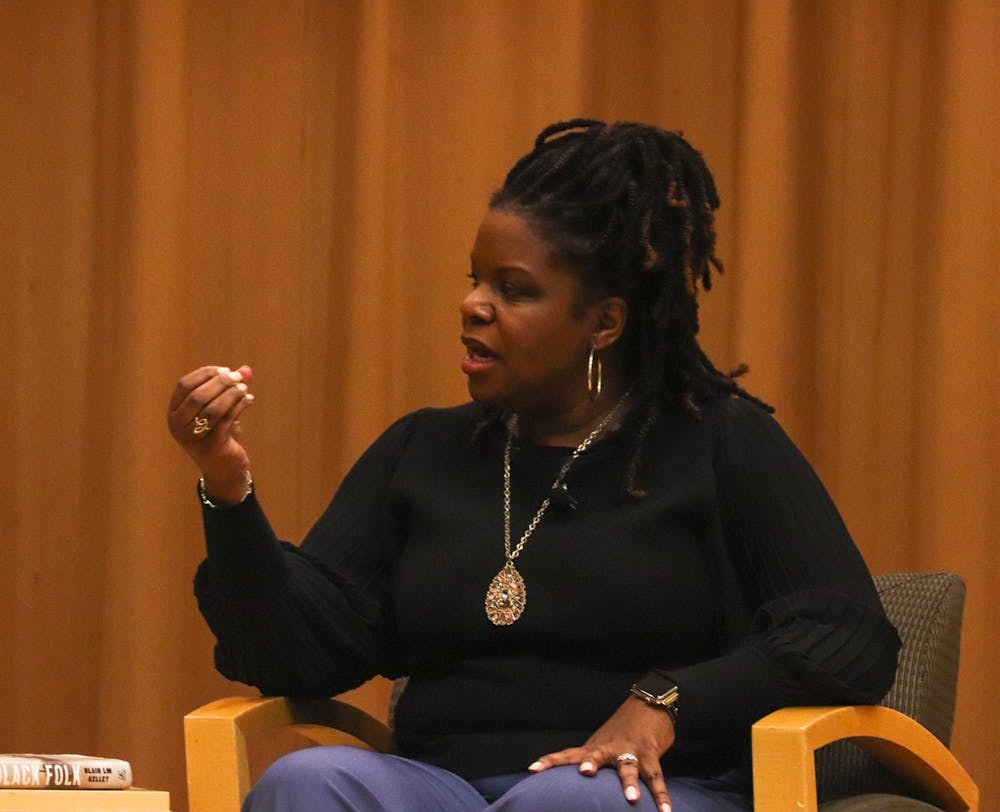The room was full, but people were still coming in.
This was the scene on Thursday in the Sonja Haynes Stone Center for Black Culture and History. It was another installment of their Writers Discussion Series, featuring Blair LM Kelley and her latest book, "Black Folk: The Roots of the Black Working Class."
Kelley is the director of the Center for the Study of the American South and a Joel R. Williamson distinguished professor of southern studies at UNC.
"Black Folk: The Roots of the Black Working Class" contains two centuries worth of stories spanning — including Kelley’s own telling of her working-class roots — and presents a personal, researched-based perspective on the experience of Black workers that honors the value of their labor.
Through the book and its research, Kelley wanted to tackle the obscurity of the Black working class in today’s media, broadening the context of who the working class — specifically, the Black working class — is.
“One of the draws, one of the reasons we wanted to have Dr. Kelley come give a talk about her book was the very refreshing manner in which the story of African American labor is told in her book,” Sheriff Drammeh, the senior program manager at the Stone Center, said.
Drammeh, the event's administrator, said the book is research-based but still accessible for readers outside of academia, which is a refreshing way to tell the story.
Hallie Brew, a sophomore at UNC who works alongside Kelley at the Center for the Study of the American South, attended the event.
Being biracial and an American Studies major, she said she went to learn about how the Black population in the South makes up the working class, as well as Kelley’s historical perspective.



